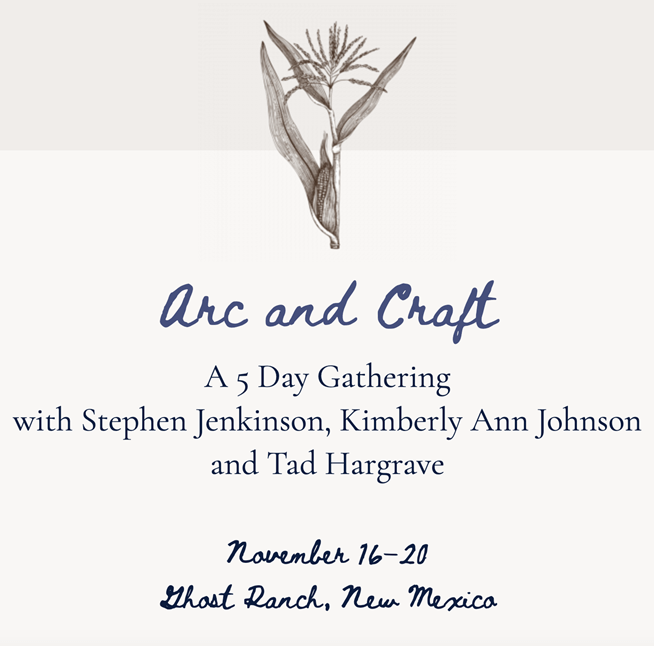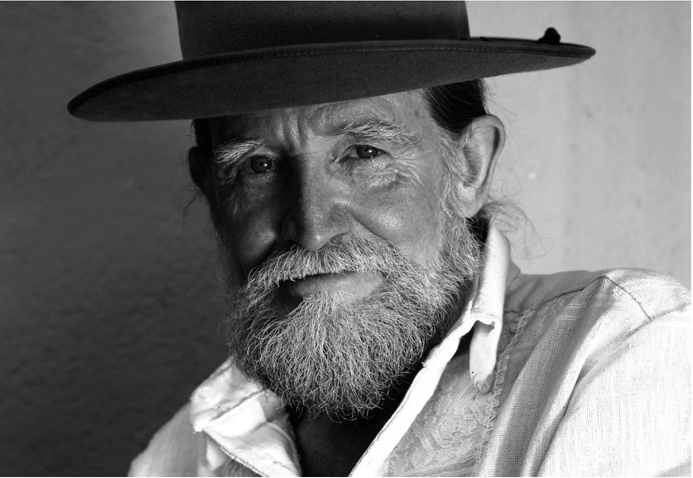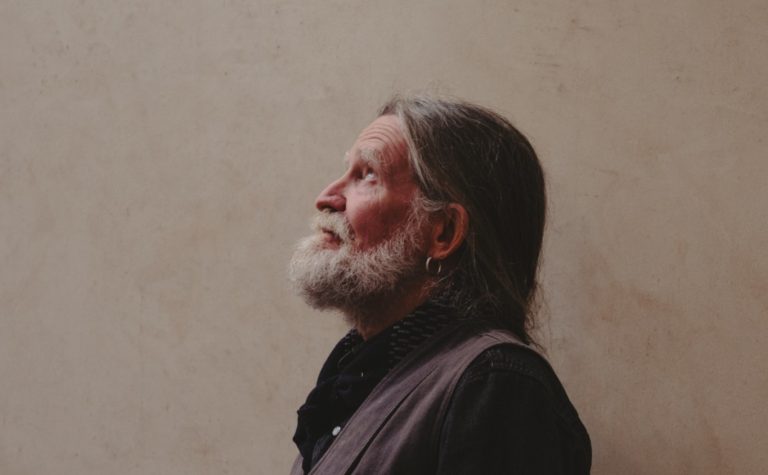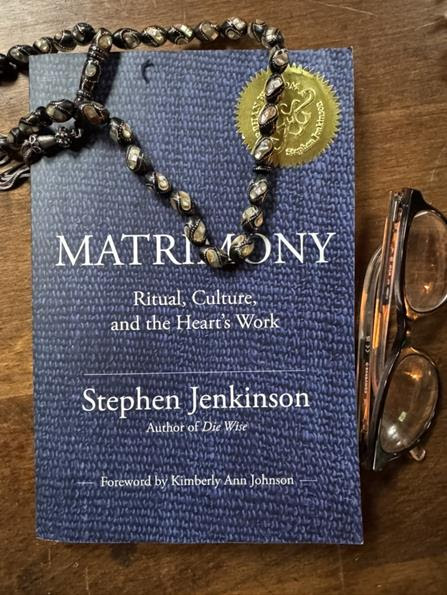
Tad Hargrave has been sitting with Stephen Jenkinson this past Spring and Summer to interview him for the upcoming event Arc and Craft this November, 2025.
Here is a brilliant excerpt for one of these meetings:
Tad: It’s, I suppose, a question that comes up for me is, given the incredible poverty that we see in our culture, the lack of elders, the lack of initiation, the lack of apprenticeship, the lack of culture, in any meaningful sense…I just finished reading “The Sibling Society” by Robert Bly, so it’s sort of the absence of that whole vertical structure. What might we better be asking for instead of more teachers?
Stephen: How about this, Tad? How about investigating this instinct of asking for? How about coming to that with more hesitation and less resolve than we’re accustomed to?
That would be my instinct first, not to, “Hey, here’s the new boss. Here’s the new thing. Here’s what’s going to replace the poorly sought other thing.” You know what I’m saying.
I’m saying that the instinct to get it, to have it, to be it, to wear it, to eat it, to snort it, to festoon yourself with it, to bewitch yourself with it, to feather yourself, and fur yourself with it, that’s the thing to be wondered about, because I don’t see those instincts, to do all those things, informed by a real willingness to learn them.
I see them as informed by a demand to have them. That’s the first thing.
It’s that demand that perpetuates this witheredness that you alluded to earlier, I think, and it’s not just delayed gratification. It’s, “Is the world really here, materially and in its spirited form? Is the world really here to enhance our sense of well-being? Is that the fundamental dynamic? Is that what’s granted to us?” It sounds awfully like Genesis to me.
“You name everything. It’s yours, baby,” kind of thing. If some shaman looks you in the eye and says, “You’ll do,” why should you take that as it’s your turn?” [laughs] What if they’re wrong about you?
There’s a wonderful story that, I know it in a kind of Buddhist iteration, but I’m sure there’s other iterations of it. The gist of it goes like this. Somebody, let’s say, who’s Catholic or Jewish — it doesn’t matter what his ancestral affirmation was, and he’s seeking a path, the path, some path, and maybe he’s in an ashram, I don’t know, something.
At some point, he asked the guy in the robes how can he, he — the young guy — get to the status of the fellow with the robes. The fellow with the robes says to him, “You’re Catholic, aren’t you?”, and the guy said, “Yeah.” He said, “Well, be a good Catholic, that’s how.”
It’s so dispiriting, because what merit is there in being a good Catholic? Now, I’m not saying there is. I’m not saying there isn’t. I’m trying to say something else, which is…Well, maybe this is the heart of the beast. I see a lot of people who come to things that I do, and five minutes into any verbal encounter with them, you quickly discover that they’ve taken up all manner of traditions from the world upon themselves, either formal conversion or times in the wilderness, or whatever it is, whatever the compound fracture is.
They have it, and the thought that seems never to have occurred to anyone who’s done these things, when they speak at least with me about it, is this. Is there such a thing as real ancestry? Number one. If there is, is ancestry instantly and forever obviated, neutralized, withered, and rendered irrelevant as a consequence of dying?
If the answer’s no, it means your ancestors, present tense, are cultured, and that part of them being the dead, as an honorific title, part of them being your ancestral dead is that they have not graduated from the ancestry that they themselves knew in life.
I think this is very possible. Take all that and then wonder about the hordes of generic North American people who are seeking an affirmation from a religious, or spiritual, or cultural tradition that’s not their own, and ask yourself whether or not there’s any consequence at all that accrues to their ancestors who they so readily abandoned in the name of being from somewhere.
And is it not possible, if any of these things are true, that the desire to seek out and seek out and demand yet again from the Amazon jungle, or from the Himalayas, or anywhere in between, doesn’t actually deepen the cultural misery and void that has animated, I think, a lot of what you’ve been doing in your life, and certainly has animated what I’ve been doing in mine.
I think the answer’s yes. I think the solution that poverty whispers is, “More poverty.”



